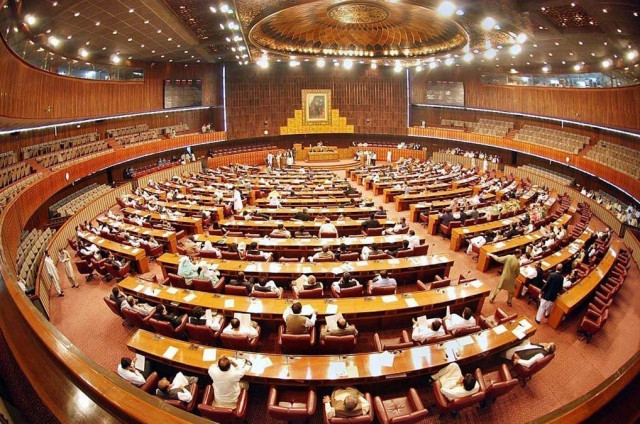‘MNAs can be de-seated, not disqualified’
Supreme Court Bar Association prepares statement on presidential reference

The Supreme Court Bar Association (SCBA) has said that Article 63(A) of the Constitution could not be interpreted in a manner so as to allow any preemptive action to be taken against any National Assembly member on the apprehension that they might defect from the direction of a parliamentary party.
SCBA counsel Mansoor Awan has prepared its concise statement on the presidential reference seeking the interpretation and scope of Article 63(A). The concise statement would be submitted to the top court on Thursday (today).
The proposed draft read that an individual MNA had the right to participate in the proceedings of a vote of no-confidence against a prime minister under Article 95 or any other matter which required voting. This right did not belong to the political party to whom they belonged and, therefore, the MNAs could not be restricted or curtailed, it added
"The removal of the prime minister from office, pursuant to Article 95 of the Constitution, is in pursuance of the Constitutional core value of ensuring that the Federal Government is truly representative of the wishes and desires of the electorate i.e. the citizens, acting through their elected representatives, as set out in the Objectives Resolution read with Article 2A of the Constitution," it added.
The proposed draft stated that all members of the National Assembly enjoyed a right, vested in them by the Constitution itself, to vote freely, subject to the consequences envisaged under Article 63(A) of the Constitution, in a vote of no-confidence against the prime minister. “Thus, the vote of each member of National Assembly who has participated in such proceedings must be counted."
Read: Bring 172 MNAs to save your govt, Ghani tells PM Imran Khan
The SCBA stated that Article 63(A) did not envisage any disqualification of an MNA on account of defecting from the parliamentary party’s directions.
“The only consequence contemplated in Article 63(A) is that the seat of a defecting Member of National Assembly may become vacant, subject to confirmation by the Election Commission of Pakistan and the outcome of an appeal filed before this Honourable Court.”
The statement read that the consequences of Article 63(A) for a defecting member must remain limited to his removal from office as a member of the relevant House. “The question of disqualification does not even arise in the context of Article 63(A) of the Constitution.”
A day earlier, the country’s chief justice had formed a five-member larger bench — selecting a judge from each province — to hear the presidential reference filed by the federal government seeking the interpretation of Article 63(A) of the Constitution as well as a petition filed by the SCBA for ensuring smooth and peaceful process of the upcoming no-confidence against Prime Minister Imran Khan under Article 95.
The Supreme Court has directed the lawyers representing all political parties to file their concise statement on the presidential reference.



















COMMENTS
Comments are moderated and generally will be posted if they are on-topic and not abusive.
For more information, please see our Comments FAQ